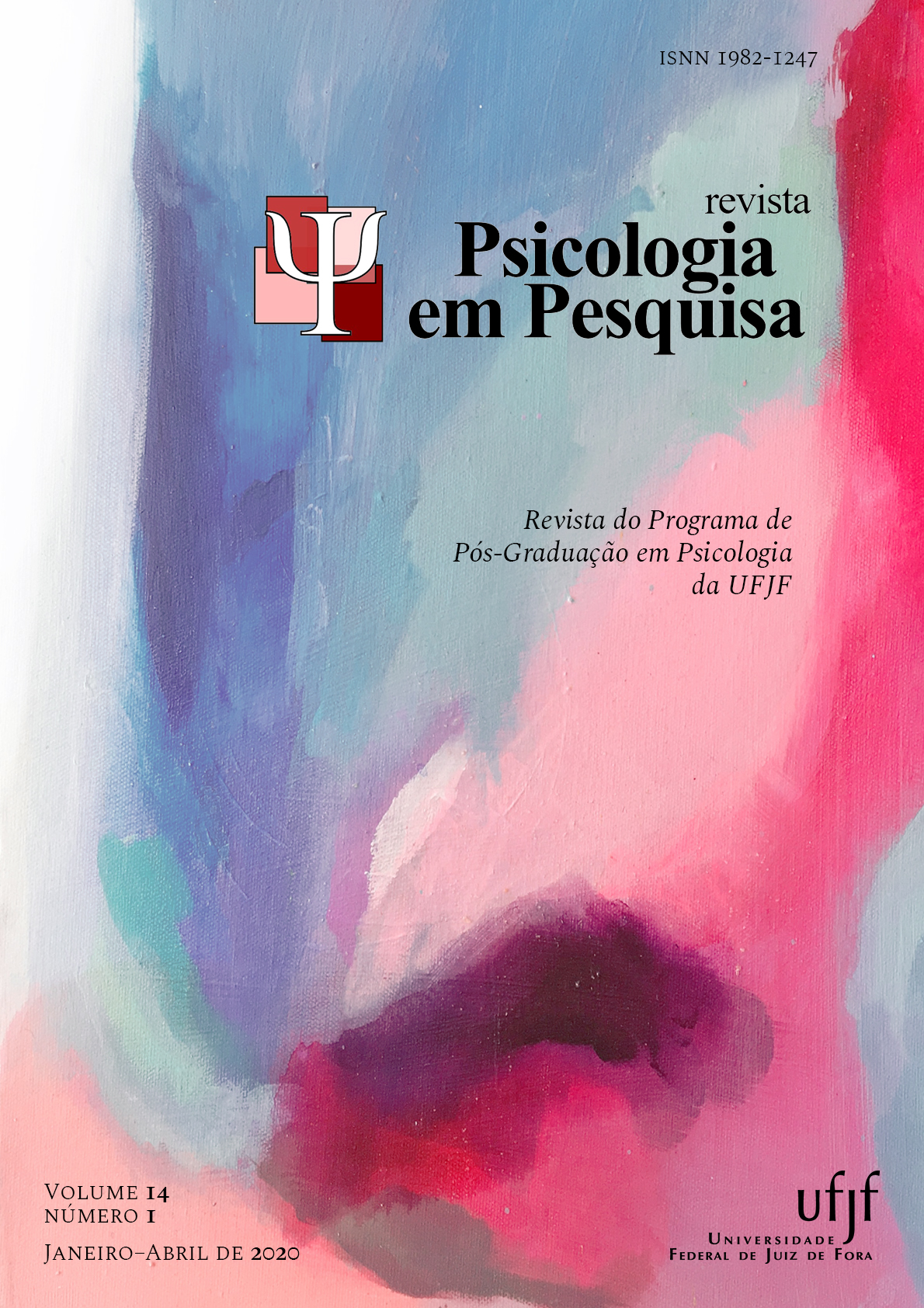A funds of knowledge approach to promoting school engagement
DOI:
https://doi.org/10.34019/1982-1247.2020.v14.27698Palavras-chave:
fundos de conhecimento, envolvimento dos estudantes, famílias imigrantes, prática pedagócica, educação infantilResumo
Research shows that the exclusion of families’ funds of knowledge (FoK) from the curriculum contributes to low levels of school engagement. This study is part of an ongoing research project aiming to promote school engagement among students from immigrant backgrounds through the strategic use of FoK. We provide an overview of the project design and explain how it has been implemented in the specific context of early childhood education in a school in Catalonia. A qualitative approach is used to assess the effect of the process from the teacher perspective, contrasting positive aspects with some of the difficulties experienced. We conclude that including families’ FoK in pedagogical practice can contribute towards improving student engagement and fostering more inclusive educational environments.
Downloads
Referências
Cummins, J. (2001). Negotiating identities: Education for empowerment in a diverse
society (2nd ed.). Los Angeles: California Association for Bilingual Education.
Chow, P., & Cummins, J. (2003). Valuing multilingual and multicultural approaches
to learning. In S. R. Schecter & J. Cummins (Eds.), Multilingual education in practice: Using diversity as a resource (32–61). Portsmouth, NH: Heinemann.
Esteban-Guitart, M. & Vila, I. (2013). Experiencias en educación inclusiva. Vinculación familia, escuela y comunidad. Barcelona: Horsori.
Esteban-Guitart, M., Oller, J., Vila, I. (2012). Vinculando escuela, familia y comunidad a través de los fondos de conocimiento e identidad. Un estudio de caso con una familia de origen marroquí. Revista de Investigación en Educación No. 10(2) 21-34.
Flick, U. (2006). An Introduction to Qualitative research. London: Sage.
Ferguson, H. B., Bovaird, S. & Mueller,M.P. (2007). The impact of poverty on educational outcomes for children. Paediatrics Child Health 12 (8) 701-706.
Fredricks, J. A., Blumenfeld, P. C., Paris, A. H. (2004). School engagement: potential of the concept, state of the evidence. Review of Educational Research. Spring 2004. Vol. 74, No. 1, 59-109.
González, N., Moll, L. C. & Amanti, C. (2005). Funds of knowledge: Theorizing practices in households, communities, and classrooms. Mahwah: Lawrence Erlbaum Associates.
González, N., Wyman, L., & O’Connor, B. (2011). The Past, Present and Future of “Funds of Knowledge”. In M. Pollock, & B. Levinson (Eds.), A Companion to the Anthropology of Education (pp. 481-494). Malden, MA: Wiley-Blackwell.
Hedges, H; Cullen, J; & Jordan, B. (2011). Early years curriculum: funds of knowledge as a conceptual framework for children’s interests, Journal of Curriculum Studies, 43:2, 185-205.
Joves, P., Siqués, C. & Esteban-Guitart, M. (2015). The Incorporation of Funds of Knowledge and Funds of Identity of Students and their Families into Educational Practice. A Case Study from Catalonia, Spain. Teaching and Teacher Education, 49, 68-77. doi:10.1016/j.tate.2015.03.001.
Llopart, M. & Esteban-Guitart, M. (2017). Strategies and resources for contextualizing the curriculum based on the funds of knowledge approach: A literature review. The Australian Educational Researcher. Doi: 10.1007/s13384-017-0237-8.
Llopart, M., Vilagran, I., Güell, C., Esteban-Guitart, M. (2017). Las visitas etnográficas a los hogares de los estudiantes como estrategia para crear lazos de confianza entre docentes y familias. Pedagogia i Treball Social. Revista de Ciències Socials Aplicades, Vol. 6. Núm. 1: 70-95.
Llopart, M. & Esteban-Guitart, M. (2018). Funds of knowledge in 21st century societies: Inclusive educational practices for underrepresented students.
A literature review. Journal of Curriculum Studies. doi: 10.1080/00220272.2016.1247913.
Moll, L., Amanti, C., Neff, D. & Gonzalez, N. (2001). Funds of knowledge for teaching: Using a qualitative approach to connect homes and classrooms. Theory into Practice, 31(2), 132-141.
Moll, L. & González, N. (2004). Engaging Life: A Funds of Knowledge Approach to Multicultural Education. In J Banks & C Banks (Eds), Handbook of Research on Multicultural Education. Second Edition (pp. 699-715). New York: Jossey-Bas.
Moll, L. (2014). L. S. Vygotsky and Education. New York: Routledge.
OECD (2012): Equity and Quality in Education: Supporting Disadvantaged Students and Schools. OECD Publishing.
OECD (2018). PISA 2015. Results in Focus. OECD Publishing.
Poveda, D. (2001). La educación de la minorías étnicas desde el marco de las continuidades-discontinuidades familia-escuela. Gazeta de Antropología, 17, 31.
Reyes, I. & Esteban-Guitart, M. (2013). Exploring multiple literacies from homes and communities. A cross-cultural comparative analysis. In K. Hall, T. Cremin, B. Comber & L. Moll (Eds.), International Handbook of Research in Children’s Literacy, Learning and Culture (pp. 155-171). New York: Wiley-Blackwell.
Rios-Aguilar, C., Marquez Kiyama, J., Gravitt, M., Moll, L. (2011). Funds of knowledge for the poor and forms of capital for the rich? A capital approach to examining funds of knowledge. Theory and Research in Education. 9(2) 163-184.















